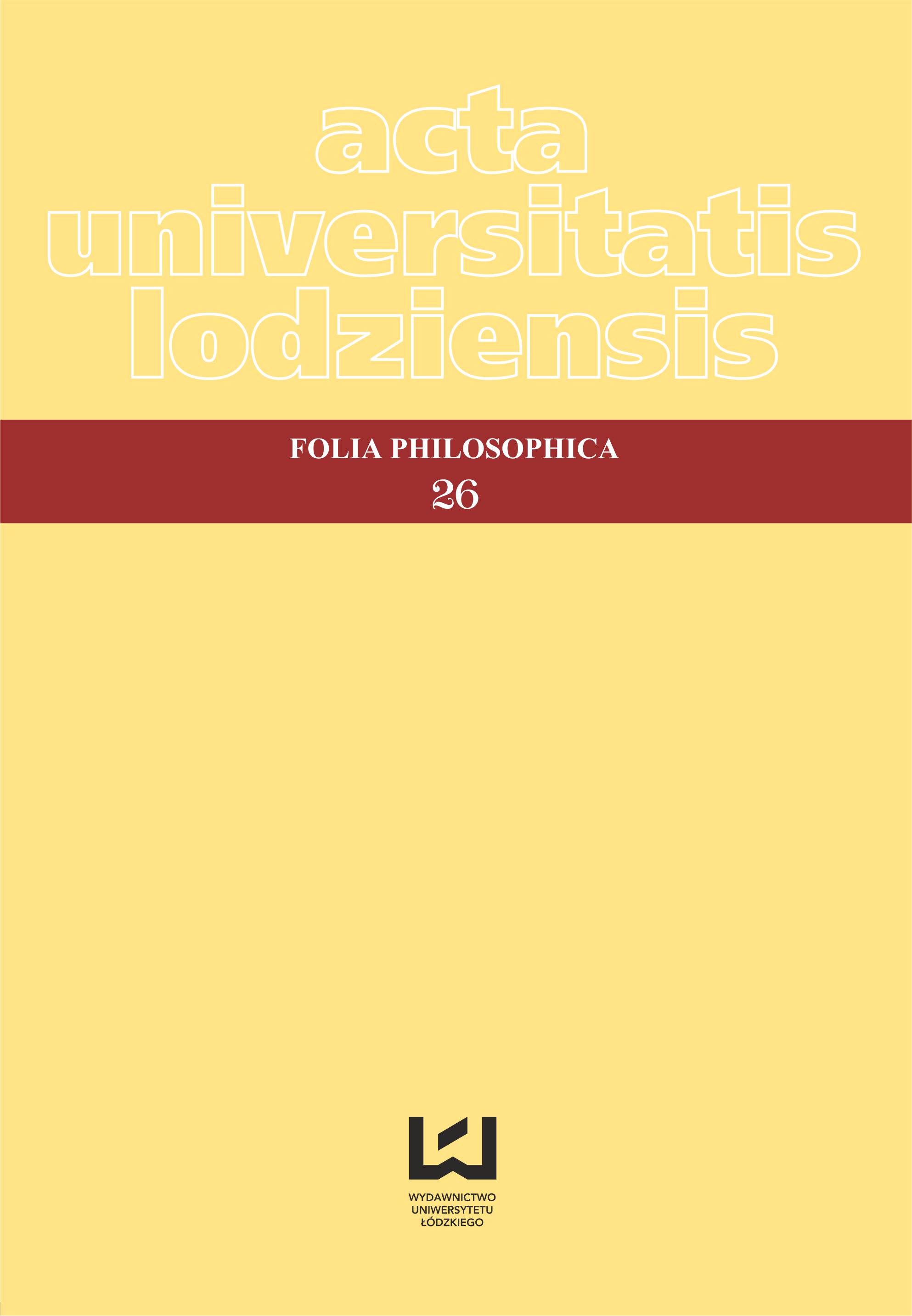Kalwina koncepcja wolnej woli i usprawiedliwienia
DOI:
https://doi.org/10.18778/0208-6107.26.03Abstrakt
Calvin in popular imagination functions as a radical antagonist of rationalism and as an extreme advocat of predestination. This article, primarily on the base of analysis of Institutio Christiane religionis, shows that his doctrines are neither so distant from the theological and philosophical traditions, or so devoid of logical structure, as is commonly believed. When Calvin's conceptions of free will and justification are placed in a broader epistemological and anthropological perspective, a detailed analysis of his thought system shows that the idea of predestination is not his objective, but rather a logical extension.
Bibliografia
Augustyn św. 2002, Państwo Boże, tłum. W. Kubicki, Kęty.
Google Scholar
Barth H. M. 1987, Marcina Lutra “Disputatio de homine” 1536, tłum. M. Potępa, J. Piórczyński, “Folia Philosophica. Acta Universitatis Lodziensis” 4.
Google Scholar
DOI: https://doi.org/10.18778/0208-6107.04.04
Battenhouse R. W. 1948, The Doctrine of Man in Calvin and in Renaissance Platonism, “Journal of the History of Ideas” 9.
Google Scholar
DOI: https://doi.org/10.2307/2707218
Calvin J. 1576, Institvtio christianae religionis, ab ipso avthore anno 1559, Lausannae.
Google Scholar
Calvin J. 1838, In Librum Geneseos Commentarius, pars I, ad Editionem Amstelodamensem, E. Hengstenberg (cur.), Berolini.
Google Scholar
Calvin J. 2006, Selections from His Writings, E. Griffin (ed.), tłum. E. A. McKee, New York.
Google Scholar
Cottret B. 2000, Kalwin, tłum. M. Milewska, Warszawa.
Google Scholar
Delumeau J. 1986, Reformy chrześcijaństwa w XVI i XVII w., t. I, tłum. J. M. Kłoczowski, Warszawa.
Google Scholar
Garin E. 2008, History of Italian Philosophy, t. 1, tłum. G. Pinton, New York.
Google Scholar
DOI: https://doi.org/10.1163/9789401205221
Helm P 2006, John Calvin’s Ideas, New York.
Google Scholar
Kalwin J. 1972, Nauka religii chrześcijańskiej (fragm.), tłum. I. Lichońska [w:] Myśl filozoficznoreligijna reformacji XVI wieku, L. Szczucki (red.), Warszawa.
Google Scholar
Lane A. N. S. 1981, Did Calvin Believe in Free Will?, “Vox Evangelica” 12.
Google Scholar
Lane A. N. S. 1996, Calvin and Bernard of Clairvaux, Princeton.
Google Scholar
Luter M. 2002, O niewolnej woli, tłum. W. Niemczyk, Świętochowice.
Google Scholar
Luter M. 2009, Komentarz do Listu do Rzymian, tłum. zespół, Tymbes.
Google Scholar
McGrath A. E. 2005, Iustitia Dei. A History of the Christian Doctrine of Justification, Cambridge. New York.
Google Scholar
McGrath A. E. 2009, Jan Kalwin. Studium kształtowania kultury Zachodu, tłum. J. Wolak, Warszawa.
Google Scholar
Oberman H. A. 1993, The Pursuit of Happiness: Calvin Between Humanism and Reformation [w:] Humanity and Divinity in Renaissance and Reformation. Essays in Honor of Charles Trinkaus, J. W. O’Malley, T. M. Izbicki, G. Christianson (ed.), Leiden, New York, Köln.
Google Scholar
DOI: https://doi.org/10.1163/9789004474154_015
Piwko S. 1985, Jana Kalwina próba teodycei. Uwagi wstępne, „Odrodzenie i Reformacja w Polsce” 30.
Google Scholar
Piwko S. 1995, Jan Kalwin. Życie i dzieło, Warszawa.
Google Scholar
Strohm C 2005, Ethics in Early Calvinism [w:] Moral Philosophy on the Threshold of Modernity, J. Kraye, R. Saarinen (ed.), Dordrecht 2005.
Google Scholar
DOI: https://doi.org/10.1007/1-4020-3001-0_13
Trinkaus C. 1954, Renaissance Problems in Calvin's Theology, “Studies in the Renaissance”, 1.
Google Scholar
DOI: https://doi.org/10.2307/2856952
Wawrykow J. 1992, John Calvin and the condign merit, “Archiv für Reformationsgeschichte”, 83.
Google Scholar
DOI: https://doi.org/10.14315/arg-1992-jg04
Zwingli U. von 1832, De vera et falsa religione [w:] Huldrici Zuingli Opera completa edition prima, M. Schulero, I. Schulthessio (cur.), Turici 1832.
Google Scholar
Pobrania
Opublikowane
Jak cytować
Numer
Dział
Licencja

Praca jest udostępniana na licencji Creative Commons Attribution-NonCommercial-NoDerivatives 3.0 Unported License.












